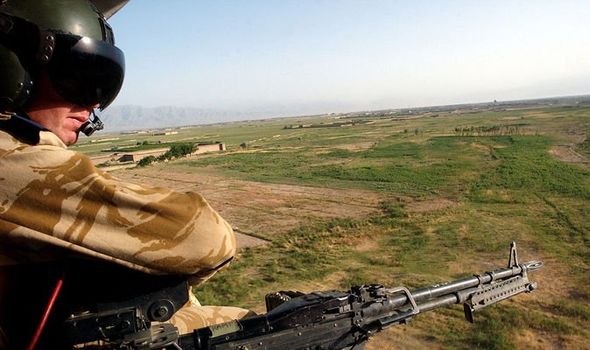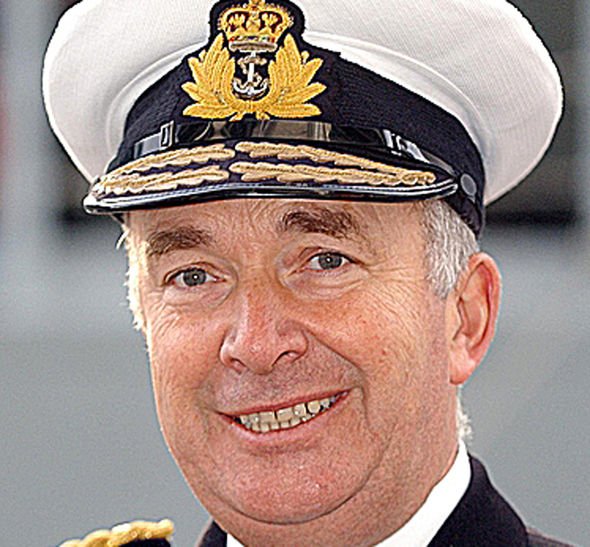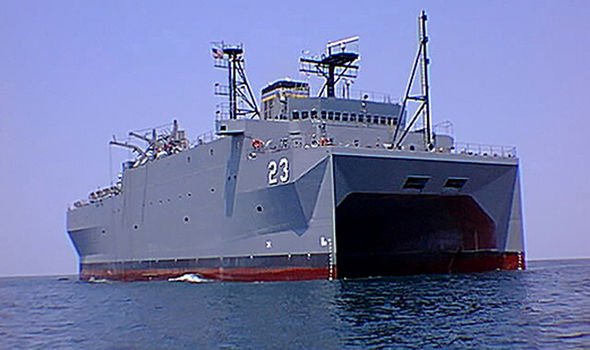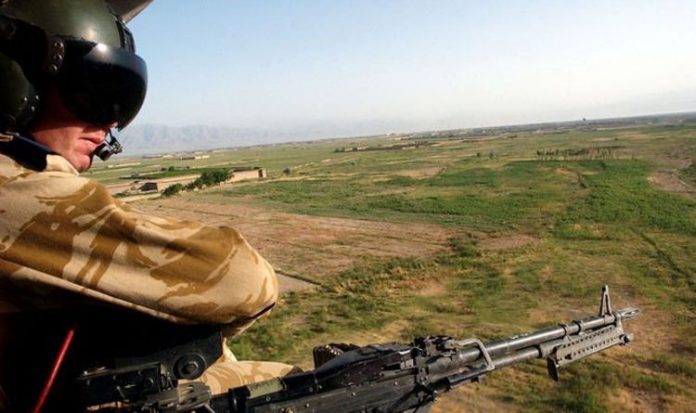The UK has 143 permanent military bases in 42 countries, from the Falklands, central and North America to Africa, Europe and the Far East. The figures, compiled by the defence website Declassified, emerge a week after PM Boris Johnson announced a 10 percent, £16.5billion, boost to the Armed Forces to extend British influence around the world. In September, Defence Secretary Ben Wallace said Britain would become “more present, more forward, more deployed and more active”. Britain has naval bases in Singapore, garrisons in Brunei, drone testing sites in Australia, three facilities in Nepal and a quick reaction force in Afghanistan.
The Government has indicated closer ties with Asian allies and the deployment of more troops “east of Suez” to counter China’s assertiveness and the threat it poses to the South China Sea, in which £5trillion of trade passes every year.
In the Gulf, Britain maintains a military presence in seven Arab monarchies and recently announced a £23.8million investment to expand Army and Navy bases in Oman, to accommodate the Royal Navy’s new aircraft carriers as well as tanks.
In Africa, British troops are based in Kenya, Somalia, Djibouti, Malawi, Sierra Leone, Nigeria and Mali, where an additional 300 troops will go next month as part of a UN peacekeeping force.
Cyprus, which acts as another British “aircraft carrier” from which to launch strikes in the Middle East, contains 17 separate bases both within its two “sovereign base areas” of Akrotiri and Dhekelia, and outside, such as the intelligence gathering facilities on Mount Olympus.
In Europe, the UK has shown it remains committed to the continent’s defence against potential Russian aggression after Brexit.

The figures counter claims that the UK lacks weight on the world stage (Image: Getty)
Locations include bases in Lithuania and Estonia where Typhoons are stationed as part of Nato’s air policing mission, the Czech Republic and Germany where, despite troop withdrawals, Britain still operates four bases.
The Lancaster Treaty accords with France mean that both nations can now deploy a 10,000-strong joint military force in response to shared threats.
And in Norway, a helicopter base at Bardufoss airport, deep in the Arctic Circle, operates just 350 miles from the HQ of Russia’s northern fleet in Severomorsk near Murmansk.
While only around 25 nations have bases with more than 100 UK military personnel, the remainder – some of which field only a handful of full-time staff – act as what Britain’s most senior soldier, General Mark Carleton-Smith, described as “lily pads” from which the UK could launch strategic or humanitarian missions.
Former First Sea Lord Admiral Lord West said: “Global stability is very important for us. Not only does our military ensure this stability, but they do an awful lot of humanitarian work.

Former First Sea Admiral Lord West stresses the importance of global stability (Image: PA Archive/PA Images)
“The only reason aid agencies can even reach many countries is because of our military presence.
“We are the biggest European country invested in South-East Asia and the Pacific rim.
“It has been made clear that we intend to run a maritime strategy for our security and defence. We need to look after our sea lanes.
“The US is very keen for us to get involved with them to get forces into the Indo-Pacific because they feel very stretched and they want allies – as do the Australians and the Japanese.”
But former head of the British Army, Gen Lord Dannatt, said Britain’s military footprint was only half of the equation for securing influence, and he condemned the decision to cut International Development by 0.2 percent.
He said: “The further I get from London the greater I find the respect for the United Kingdom.
“Now we are freed from the shackles of a common EU foreign policy, we can decide what contributions we feel must be made. But we must resource it.
“If we aspire to be global Britain, it needs to come about through a combination of hard power, our military capability, and soft power which is our diplomatic skills and our international development budget.
“If the international aid cut runs for five years, it will equate to the £16.5billion we have just pledged for hard power. This becomes a zero-sum game.
“I believe in global Britain, but if this term is only a bumper sticker, we may as well bring everyone back home.”
Express Comment: Spy ships keeping an eye on China:
SPY ships that can detect danger 1,000 miles away are joining the fleet of the Royal Navy to combat the increased threat from Russia and China.
Believed to be the most advanced surveillance vessels in the world, they will carry underwater mini-submarines and drones to assist a 100-strong crew – largely seconded from GCHQ – to monitor intercepted conversations.
The move is part of the biggest increase in defence spending since the Cold War, which was announced by Prime Minister Boris Johnson last week.
The multi-role research vessels, which will be built in the UK, are expected to have a similar design to the US navy’s Impeccable class ships.
However, its surveillance range will be far superior to the American version. They will sail alongside two large ocean-going auxiliary vessels used by the Special Boat Service to mount global maritime operations.

The US surveillance ships can detect danger 1,000 miles away (Image: NC)
Sources say the decision to build the vessels was prompted by a review of intelligence evidence showing increased naval spying by China and Russia.
Their prey will be Moscow’s ultra-advanced new Belgorod and Yasen class submarines – understood to be untraceable underwater – and the Chinese Jin class nuclear ballistic boats.
Over the past five years Russian premier Vladimir Putin has invested heavily in his northern fleet, which is dominated by nuclear submarines which regularly patrol the North Sea to spy on Nato and Royal Navy operations.
Last year Moscow had as many as 10 submarines deployed in the North Atlantic alone, according to Nato and US intelligence reports.
A senior naval source said: “Both Russia and China utilise converted fishing vessels to act as surveillance ships.
“With this new British capability there will be no hiding place forour adversaries.
“Their specialist computer systems will be able to locate them and that means enhancing our security.”







